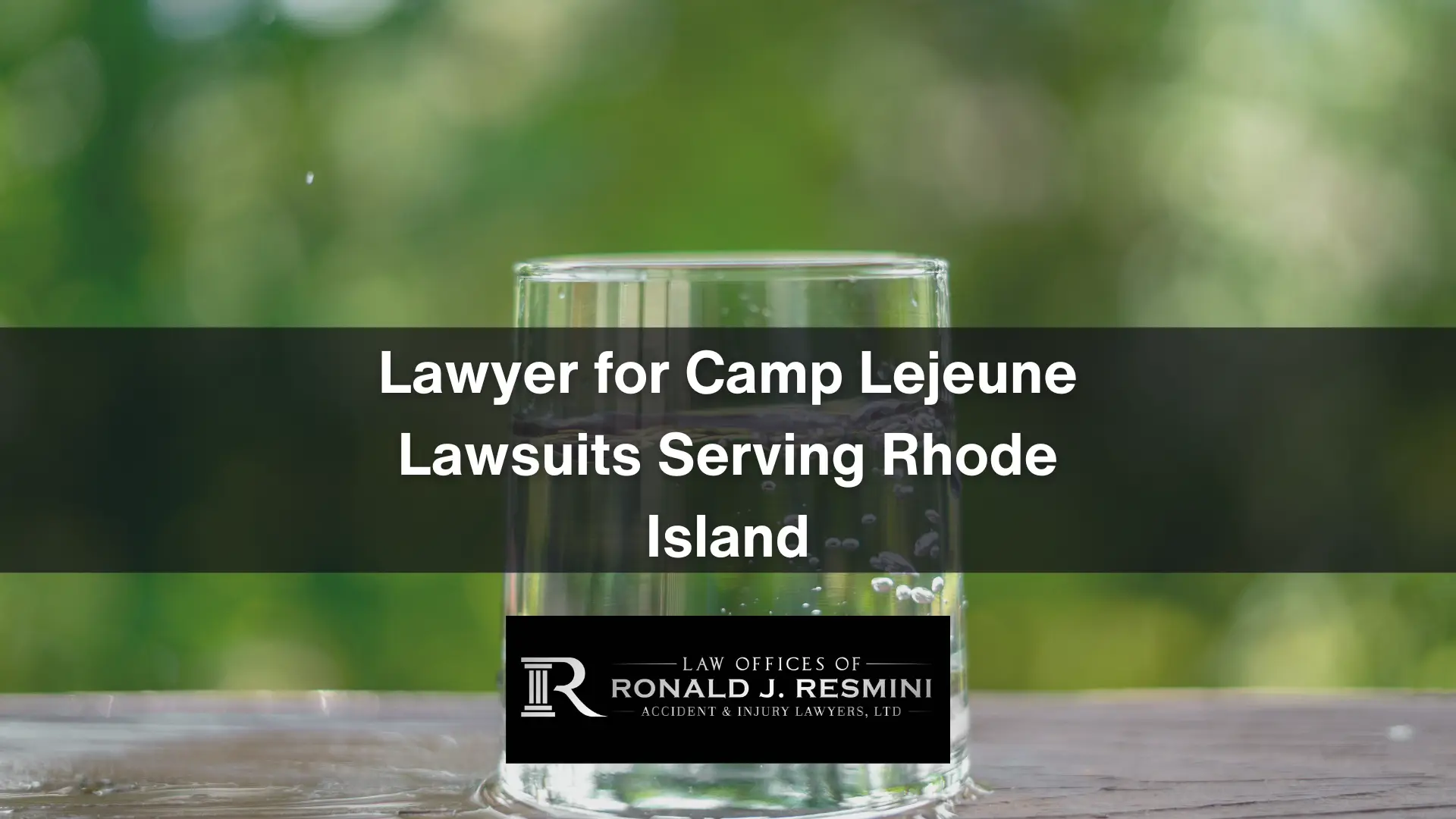 Servicemembers, military families, and civilian employees who lived and worked at Marine Corp Base Camp Lejeune in North Carolina between 1953 and 1987 were regularly exposed to contaminated water. This water contained four volatile organic compounds (VOCs) that are known to be hazardous to human health. The four main VOCs found in the water supply at Camp Lejeune were PCE, TCE, vinyl chloride, and benzene. These VOCs have been linked to cancer, Parkinson’s disease, birth defects, and a host of other serious health conditions.
Servicemembers, military families, and civilian employees who lived and worked at Marine Corp Base Camp Lejeune in North Carolina between 1953 and 1987 were regularly exposed to contaminated water. This water contained four volatile organic compounds (VOCs) that are known to be hazardous to human health. The four main VOCs found in the water supply at Camp Lejeune were PCE, TCE, vinyl chloride, and benzene. These VOCs have been linked to cancer, Parkinson’s disease, birth defects, and a host of other serious health conditions.
Though the water contamination began around 1953, rigorous testing was not completed on the base until early 1985. For well over 30 years, the government allowed harmful chemicals to circulate through the water supply at the camp, potentially affecting hundreds of thousands of Marines and civilians.
If you stayed or worked at Camp Lejeune for at least 30 days from August 1, 1953, to December 31, 1987, you could be entitled to recover compensation through a federal lawsuit thanks to the Camp Lejeune Justice Act of 2022, which was a major component of the recently passed PACT Act. Contact a Rhode Island Camp Lejeune lawsuit attorney at the Law Offices of Ronald J. Resmini, Accident & Injury Lawyers, Ltd. right away to discuss your legal options during a free, no-risk case evaluation. You can reach our office by phone at (401) 751-8855 or by filling out our online contact form.
A Brief History of Water Contamination at Camp Lejeune
According to the Agency for Toxic Substances and Disease Registry (ATSDR), the water contamination at Camp Lejeune was mostly limited to two specific water treatment facilities. The primary VOC found in the water supply at the Tarawa Terrace water treatment facility was PCE (perchloroethylene or tetrachloroethylene). Concentrations of this contaminant significantly exceeded the EPA’s present-day contaminant level of 5 parts per billion (ppb).
A nearby dry-cleaning company known as ABC One-Hour Cleaners was found to be the source of the contamination. PCE is commonly used as a dry-cleaning agent, and the cleaning company had been improperly disposing of their chemical waste. This allowed harmful toxins to seep into the groundwater around the base and, eventually, contaminated the water at Tarawa Terrace.
The water at the Hadnot Point water treatment facility was also contaminated. The main contaminant there was TCE (trichloroethylene), though other toxins, including benzene, vinyl chloride, and DCE (t-1,2-dichloroethylene), were also discovered in wells at the plant. There were numerous sources of contamination at Hadnot Point, including leaking underground tanks, industrial spills, and hazardous waste disposal areas.
After thorough testing was conducted in February 1985, the most highly contaminated wells at both the Tarawa Terrace facility and the Hadnot Point facility were shut down for good. Unfortunately, it was more than three decades too late for the servicemembers and civilians who had already been exposed to dangerous VOCs.
Who Qualifies for a Camp Lejeune Lawsuit?
In order to qualify for a Camp Lejeune lawsuit, you must have lived or stayed on the base for at least 30 days between August 1, 1953, and December 31, 1987. The 30 days do not have to be consecutive. For example, if you visited family at the camp sporadically throughout that time period and you stayed at the camp for at least 30 days in total, you could qualify for a lawsuit.
Health Problems That May Be Caused by the Camp Lejeune Water Contamination
VOCs have been linked to a broad range of severe health conditions and cancers, including:
- Breast cancer
- Liver cancer
- Lung cancer
- Esophageal cancer
- Kidney cancer
- Cervical cancer
- Ovarian cancer
- Bladder cancer
- Prostate cancer
- Parkinson’s disease
- Multiple myeloma
- Non-Hodgkin’s lymphoma
- Leukemia
- Hepatic steatosis
- Scleroderma
- Renal toxicity
- Miscarriages
- Decreased fertility
- Birth defects
- Liver disease
- Neurobehavioral issues
Were you diagnosed with one of the above conditions or another serious health issue after being exposed to contaminated water at Camp Lejeune? If so, the PACT Act could permit you to file a federal lawsuit against the government in North Carolina.
Camp Lejeune Justice Act
 Servicemembers and others who developed health problems after being exposed to toxins in the drinking water at Camp Lejeune have been barred from pursuing legal action against the government for decades. In North Carolina, there is a ten-year time limit dictated by the statute of repose on polluters. This statute prevents any person who was harmed by a polluter’s negligence from suing them once ten years have passed since the negligence first began. As a result, thousands of former Camp Lejeune residents and workers have been unable to seek compensation through the courts for their medical expenses, lost income, lost quality of life, physical pain, and emotional suffering that were caused by toxic exposure.
Servicemembers and others who developed health problems after being exposed to toxins in the drinking water at Camp Lejeune have been barred from pursuing legal action against the government for decades. In North Carolina, there is a ten-year time limit dictated by the statute of repose on polluters. This statute prevents any person who was harmed by a polluter’s negligence from suing them once ten years have passed since the negligence first began. As a result, thousands of former Camp Lejeune residents and workers have been unable to seek compensation through the courts for their medical expenses, lost income, lost quality of life, physical pain, and emotional suffering that were caused by toxic exposure.
Now, thanks to the Camp Lejeune Justice Act, which passed in the U.S. Senate in early August of this year, servicemembers and others who were diagnosed with cancer and other conditions after being stationed on the base will finally be able to have their day in court. The Camp Lejeune Justice Act removes the legal barrier imposed by North Carolina’s statute of repose and allows victims to file a lawsuit in the Eastern District of North Carolina.
It’s important to note that the new law does not automatically entitle anyone to compensation. If you were exposed to toxic chemicals while living or working at Camp Lejeune and plan to file a lawsuit, you’ll still need to be able to prove your case. To succeed, you must present strong evidence that supports your claim, which could include proof of your 30 days spent at Camp Lejeune, medical records, medical expert testimony, hospital bills, prescription medication receipts, and so on. Bringing a federal lawsuit on your own is not a good idea. That’s why we highly recommend hiring a knowledgeable Camp Lejeune lawsuit attorney to handle your case.
Contact a Rhode Island Camp Lejeune Lawyer
If you think you may be eligible for a Camp Lejeune lawsuit, reach out to our Rhode Island Camp Lejeune attorneys of the Law Offices of Ronald J. Resmini, Accident & Injury Lawyers, Ltd.. We have extensive experience fighting for fair financial relief in federal court on behalf of our clients. During a free consultation, we will assess your situation, determine whether you have a case, and help you understand your legal options. Contact us today by calling (401) 751-8855 or reach us through the contact form on our website.
